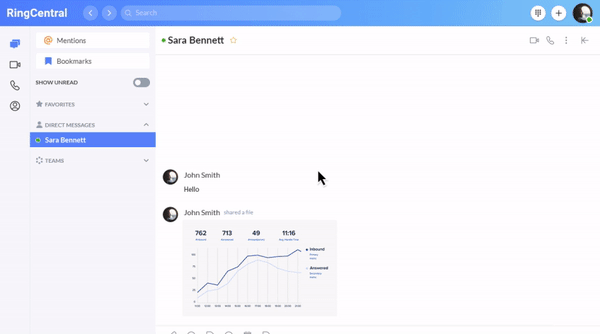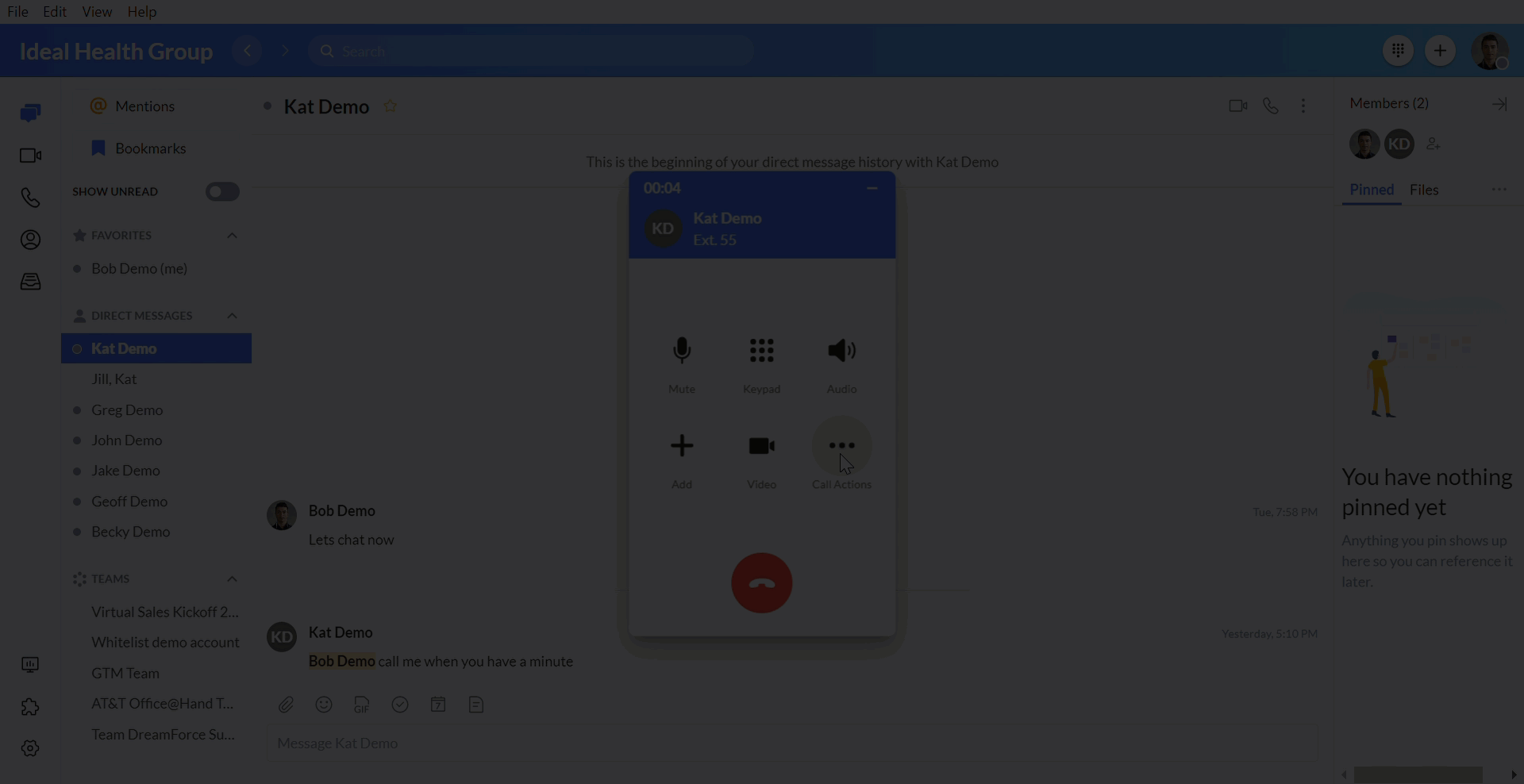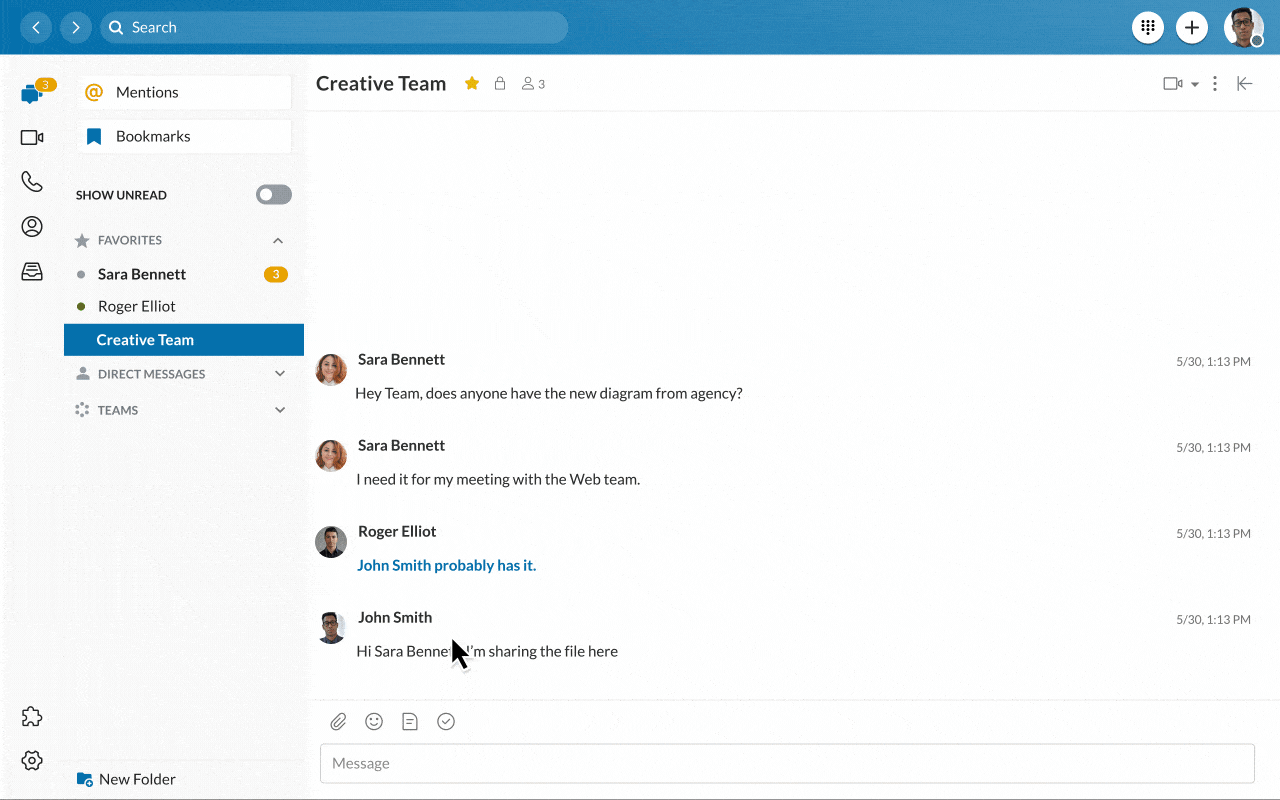Bulky on-site PBX phone systems are a thing of the past. As businesses of all sizes prepare for the big switch-off in 2025, cloud-based phone systems are the best option for forward-thinking small businesses. Cloud-based phone systems don’t require a room full of equipment on site, but they provide all the features you need and want using the same VoIP technology over an internet connection.
Whether you’re exploring new ways to connect your employees and customers or getting ready to move to a VoIP phone system, make sure you cover all the bases to find the best option for your company.
Here’s what we’ll cover today:
- What is a “cloud phone”?
- How to pick the best small business phone system
- Benefits of a cloud phone for small businesses
- Find the right match

What is a cloud phone?
For a long time, clunky on-premises phone systems that took days to install and deploy were the only option. But now, many businesses are turning to VoIP technology as a more user-friendly, agile, and streamlined alternative. But what is VoIP?
VoIP stands for Voice over Internet Protocol. It is also referred to as IP telephony, internet telephony or internet calling. It’s an alternative to a public switched telephone network (PSTN). While it may sound it, a VoIP phone system is not complicated. So what exactly is a cloud phone then?
Simply put, a cloud phone is a phone system that runs entirely over an internet connection (a.k.a. VoIP), instead of with on-premises technology. A cloud phone can be answered on a desk phone or even through your computer or mobile device.
How to pick the best small business phone system
When choosing your business phone system, you want to make sure it has all the features you will need.
- Will you need call routing, auto-attendant, or call forwarding?
- Are you looking for the cloud version of a PBX system, or a virtual phone system that can be used in any location?
- Are you looking for a free cloud-based system? If so, can you be content with only basic features and no live customer service?
- Do you want to automate any aspects of your calling, such as using sales call lists, contacting customers to offer special promotions, or sending out messages to team members?
- How does your team work on a daily basis? Could a cloud phone that includes video conferencing and team messaging solutions help streamline your operations?
- What kind of tech support and onboarding assistance does the provider offer? How much hands-on help would you like upfront and ongoing from them?
Once you have decided what you want from a phone system and identified all the features you will need, you may want to consider the pros and cons of different options.
While you never want to pay for features you don’t need and won’t use, but you may want to be forward-looking and think about features you may need as the business grows. Choose a system that includes your projected future needs as well as current ones.
In reality, the best business phone system for your business will be the one that meets your specific needs now and in the future. Typically, this now goes way beyond just phone calls or a VoIP phone system that doesn’t have cloud capabilities.
Even if you think a PBX or non-cloud VoIP system is what you need, it’s important to consider whether such a system will meet your needs in the future. While site-based phone systems may work for your business now, they are already outdated and will only become more so in the future.
It doesn’t make sense to pay large up-front costs for a phone system that will likely be abandoned imminently as more and more businesses move to the cloud.
5 benefits for small businesses making the switch to cloud phone
If you’re still using an on-premises phone for your business, you probably already know the drawbacks of that system. They take up valuable space, require a lot of maintenance and there’s limited mobility for your team.
As small businesses change and grow, the ability to quickly scale up (or down) becomes a necessity. Adding new employees, for example, requires the company to adapt its phone system to accommodate the need for more lines. So, what are the benefits of switching to a cloud phone system?
1. Simple to use
One of the biggest benefits of using a cloud-based phone system is how easy the system can be to use. Without any expert help, you can be up and running with your new phone system right away, rather than waiting for installation and training that could take days or weeks.
Starting to use your new phone system can be as easy as downloading an app and you are ready to go. The app is configured to be user-friendly and intuitive so that all your employees can easily understand how to use it.
In many cases, you can use your existing phones, and employees can use their own devices with the app to make the learning curve practically non-existent.
For small businesses that can’t afford a large up-front cost for equipment, but can afford the small monthly fee, cloud-based phone systems can give them exactly what they need at a cost they can afford.
Similarly, small businesses can run the system with existing staff, with no hires needed to administer the system or maintain it. While some startups may have the capital to afford investment in equipment and personnel, there is simply no need to with the right cloud phone. Take RingCentral, for example. With a simple download, you’re up and running on any device in a matter of minutes. Plus, the interface is user-friendly, even for the technophobes on your team. Jump from one-on-one calls to a conference in just one click:
2. Flexibility to scale up (and down)
As a business grows, so does the need to hire new employees, open new offices and onboard new customers. This requires a communications system that can scale up — or down — as the need arises.
With a cloud-based phone system, businesses can add as many extensions as they need to accommodate heightened call volume, or, if necessary, simply call in to deactivate these extra extensions. Unlike traditional systems, businesses only pay for the extensions they need for as long as they need them. This is how easy it is to add a new user with RingCentral:
Call controls such as record, transfer, and flip are available during an active RingCentral call.
3. Take your business with you
Small businesses have never needed to be more agile than they are today. With an office-based phone system, you’re tied to your desk and so is your team. A cloud phone system is run entirely via the Internet. That means you can answer calls on your desk phone, computer or mobile devices (without having to give out your phone number). Whether you’re working in a brick-and-mortar building, your home office or the road, your customers can always get a hold of someone.
This kind of flexibility is also a huge bonus for your team. Employee retention is critical today, and a cloud phone system can allow your employees the freedom to do their best work, from anywhere.
Plus, when you’re set up for remote and hybrid work, your talent pool expands globally. You can even recruit and hire remote employees from a distance if you have the right cloud phone provider. A platform like RingCentral combines a powerful cloud phone system with HD video conferencing and team messaging:
4. Improve customer service
With features that allow you to quickly and easily manage calls, businesses can easily direct calls to various departments and even create greetings unique to a given department.
For example, a business could set up a holiday greeting in advance (via the administrative portal) and pre-set it to revert to the non-holiday greeting on a specified date. It could also add an on-hold message about special promotions or commonly asked questions.
5. Make your small business feel big
In order to survive, small businesses need to compete with those who have much more experience, revenue and reputation than they do. In other words, small businesses need enterprise-level tools and capabilities even though they rarely have the budget for that level of solutions.
It’s crucial to work smarter, not harder, and to find ways to get access to enterprise-level resources and tools without the enterprise-level price tag.
Cloud phone systems give your business the big-company polish you need at a price you can live with. This goes a long way to helping level the playing field.

Find your cloud phone match for your small business
Your phone system plays a critical role in business operations and the experience customers have with your small business. Migrating your phone system to the cloud can help you to manage costs better, give your team the time needed to focus on growing your business and prepare your organisation to meet the future of business communications head-on.
When in doubt, be sure to look for a cloud phone provider that offers the kind of hands-on customer service and tech support that puts you at ease.
Originally published Jun 13, 2022, updated Aug 24, 2023




